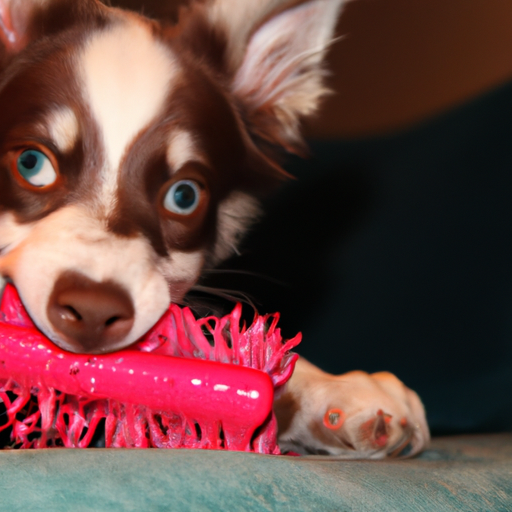Understanding the Basics of Puppy Teething
Just like humans, dogs also go through a teething process. They are born toothless and their baby teeth, also known as deciduous teeth, start to appear when they’re about 2-4 weeks old. As you watch your little furball grow, you may start to wonder, when do dogs lose their baby teeth?
The Timeline of Puppy Teething
In general, puppies begin to lose their baby teeth around 12-16 weeks of age. This process is not instantaneous, and it may take a few weeks to several months for all baby teeth to fall out and be replaced by adult teeth. Below is a typical timeline:
- 2-4 Weeks: Birth of baby teeth
- 12-16 Weeks: Start losing baby teeth
- 6 Months: All baby teeth have typically fallen out
Signs Your Puppy is Losing Their Baby Teeth
During this teething period, you might notice some changes in your puppy’s behaviour. Here are some signs to look out for:
- Increased chewing on toys, furniture, and even your hands
- Finding tiny teeth around the house
- Swollen, red gums
- Reduced appetite due to sore gums
How to Help Your Teething Puppy
Teething can be a painful process for your puppy. But fear not, there are several ways you can help ease their discomfort:
- Provide Teething Toys: Teething toys can provide some relief to your puppy’s sore gums. They can also save your furniture and personal items from being chewed on.
- Feed Soft Foods: If your puppy is having trouble eating their regular food due to sore gums, you might want to try feeding them soft foods.
- Consult a Vet: If your puppy seems excessively uncomfortable, it might be a good idea to consult a vet. They can provide advice and possibly prescribe medication to help with the pain.
Importance of Dental Hygiene in Dogs
Even after all the baby teeth have fallen out, it’s important to maintain good dental hygiene for your dog. Regular brushing and dental treats can help prevent gum disease and other dental problems. Remember, your dog’s oral health can significantly impact their overall health.
| Importance | Description |
|---|---|
| Prevent Gum Disease | Regular brushing can help remove plaque and prevent gum disease. |
| Prevent Bad Breath | Good oral hygiene can help keep your dog’s breath fresh. |
| Maintain Overall Health | Dental health is linked to overall health in dogs. Poor oral hygiene can lead to other health problems. |
FAQ
Q: Is it normal for puppies to swallow their baby teeth?
A: Yes, it’s quite common and usually not a cause for concern.
Q: What if my puppy’s baby teeth don’t fall out?
A: If your puppy’s baby teeth haven’t fallen out by 6 months, it’s best to consult a vet.
Q: How often should I brush my dog’s teeth?
A: Ideally, you should brush your dog’s teeth daily. But if that’s not possible, aim for at least 3-4 times a week.
Q: Can I use human toothpaste to brush my dog’s teeth?
A: No, human toothpaste can be harmful to dogs. Always use a toothpaste designed for dogs.



